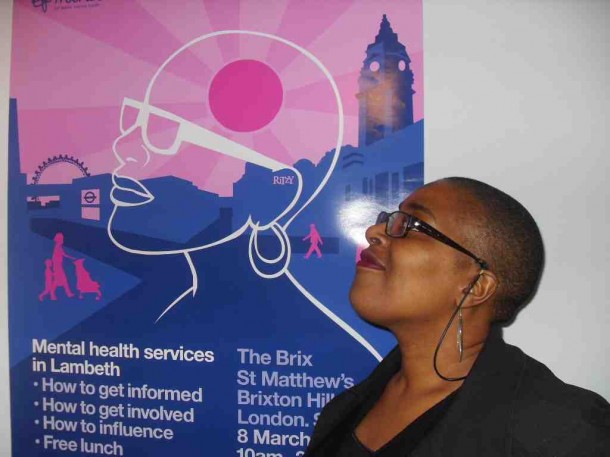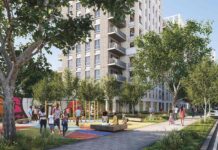
Commission co-chair Jacqui Dyer
October was Black History Month and the London Borough of Lambeth, home of the one of the UK’s largest and most established black communities, has begun a commission to improve mental health amongst Caribbean and African people.
Over many decades, whilst often struggling with discrimination and poverty, Lambeth’s black communities have made a massively positive political, academic and cultural contribution to the area and the whole country. But despite their collective resilience a disproportionate number of black people develop serious mental health conditions, are subject to compulsory treatment orders and are detained under the Mental Health Act.
In Lambeth, with a black population of 21 per cent, over 50 per cent of people admitted to acute psychiatric wards and 65 per cent on forensic secure wards are from Caribbean and African communities. There is a 15 fold difference between prevalence in black men compared with white men.
Whilst black people are massively over-represented in the most serious end of the mental health system they are consistently under-represented in mild and moderate treatment areas.
In recent years the deaths of Sean Rigg and Olaseni Lewis, black patients killed whilst being restrained by the police, have done nothing to reassure people that they will be treated fairly. This creates a vicious circle where black people stay away from services until they are so unwell that treatment is less likely to be successful and they are more likely to react negatively.
It is this combination of factors that led Lambeth’s health and adult social care scrutiny committee to ask the new Health and Wellbeing Board to act. The Board has started work involving hundreds of people in co-designing new adult mental health services over the next year and a Black Mental Health Commission has been established with the assistance of mental health charity the National Survivor User Network (NSUN).
I will be co-chairing the commission with Jacqui Dyer who is, among many other things, a local black, service-user and carer. We are joined by experts from South London and the Maudsley NHS Mental Health Trust, Lambeth clinical commissioning group, NHS England and academia. These participants bring a committed and enthusiastic approach to identifying improvement opportunities within a challenging and long neglected area of health and community healing.
Across the borough and the country there are good examples of improvements in these areas. For example pastors, imams and even barbers have been trained to deliver therapy in contexts some people find more comfortable and elsewhere service-user run crisis services have provided people with alternatives to formal hospital admissions.
At the prevention end we know that parenting, poverty, housing and community all play an important part in a person’s mental health and we must find better ways to support people in all these areas.
It does not help that authorities like Lambeth are dealing with disproportionate cuts, our public health settlement is less than half that of places like the City of London and the NHS funding formula will further disadvantage younger, poorer populations like ours but we are determined to make the best of what we have for our residents with the greatest need.

Ed Davie is a Labour councillor in Lambeth and co-chair of the new Black Mental Health Commission.




[…] has risen to the challenge set out in this earlier Blog post with hundreds of residents contributing ideas to the Lambeth Black Health and Wellbeing Commission […]
What does this initiative have to do with ‘black’ “history”?
Sadly the history of black people in this country includes deaths in custody which this commission is working to prevent.